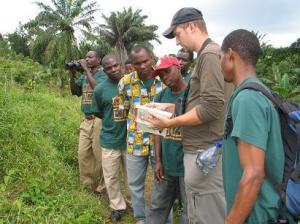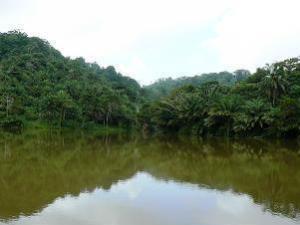Johanna Kolemainen
Other projects
This project aims to explore the possibility of developing community-based ecotourism as a strategy to integrate forest conservation and community development in Magoroto and Mlinga forests in the East Usambara Mountains, NE Tanzania.

This project aims to explore the possibility of developing community-based ecotourism as a strategy to integrate forest conservation and community development in Magoroto and Mlinga forests in the East Usambara Mountains, NE Tanzania.

These forests are a part of the globally important Eastern Arc Mountains and coastal forests biodiversity hotspot and severely threatened by unsustainable exploitation by fast growing human population. The specific objectives of the proposed project are: to raise awareness of the local communities about forest conservation, to train communities in forest conservation techniques, to explore how traditional forest conservation practices (rituals, taboos) could play a greater role in today’s conservation and how this cultural heritage could be interpreted as part of the ecotourism offer, to offer tourism training for local people, to produce a travel brochure for the purpose of tourism marketing and to establish a network of stakeholders for ecotourism development.
Moreover, a status report and a conservation plan will be produced for the populations of the flagship plant African violet (genus Saintpaulia) in the project area with guidelines for their sustainable use in tourism. This is a new project, but it is based on the lessons learned from the previous projects in the area, notably the East Usambara Conservation and Management Programme (EUCAMP) in 1990-2002 and the pilot Saintpaulia Conservation Project of the Finnish Saintpaulia Society in 2003.
EUCAMP initiated ecotourism development in the East Usambara, but after the project phased out, there has been little progress and benefits to local communities remain marginal. In the pilot Saintpaulia Conservation Project, it was observed that the African violet sites located near forest borders were threatened due to recurrent fires and disturbance to vegetation caused by human activities. It was also found out that many of the sites would serve as interesting tourist attractions because of their natural beauty and association with local spiritual traditions. The interviewed local people were interested in developing ecotourism, but stated the need for assistance such as training and resources.
The proposed project is planned to start in January 2007 and continue for about one year. Main partner institutions for the project in Tanzania are Muheza District, Tanga Regional Catchment Forest Office and Amboni Sisal Properties Ltd., the owner of the Magorotto Estate.